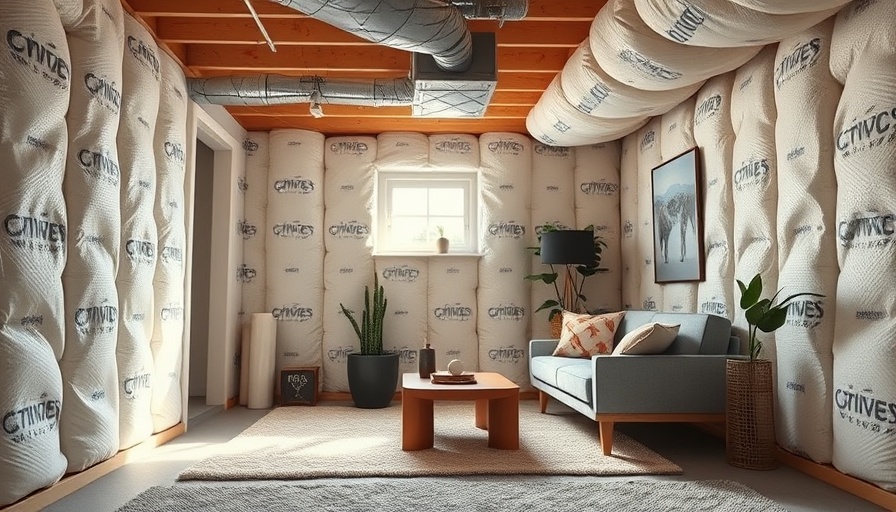
Cozy Comfort: The Importance of Basement Insulation in Brooklyn
Brooklyn homeowners face unique challenges when it comes to creating a comfortable living space, particularly in the often overlooked basement. A well-insulated basement not only allows for year-round comfort, it plays a significant role in energy efficiency. With the shifting climates typical of Brooklyn—freezing winters and hot summers—it’s essential to choose the right insulation that will stand the test of time.
Assessing Your Insulation Needs
Before you jump into selecting materials, take a moment to analyze your basement’s structure. What are the variables affecting the temperature? Understanding your basement's insulation needs involves checking for moisture, evaluating heat flow, and recognizing building codes in Brooklyn. Think of your basement as a sponge; if it absorbs moisture, mold is waiting to make its home.
One of the critical metrics to consider is the R-value. This is a measurement of insulating effectiveness. For basement insulation in Brooklyn, homeowners should aim for materials with a minimum R-value of 13. Choosing insulation that meets or exceeds this ensures a cozy atmosphere while offsetting energy bills.
Top Insulation Materials to Consider
There are several excellent options for insulation materials to consider for a basement. Let's delve into a few of the most popular choices:
Fiberglass Insulation: Affordable and Effective
Fiberglass insulation remains a favorite among homeowners. It can be easily fitted between wall studs and joists, forming a barrier that effectively curtails heat loss. Additionally, when paired with a vapor barrier, it demonstrates an impressive resistance to moisture—an essential factor in Brooklyn’s humid conditions.
Another plus? Fiberglass is non-combustible, adding a layer of safety that can put your mind at ease. For those looking to take on a DIY approach, remember to wear protective gear while installing to avoid skin irritation. If you prefer, hiring a professional can ensure everything is done correctly.
Spray Foam Insulation: The Modern Marvel
If you’re seeking cutting-edge technology, spray foam insulation is worth considering. It fills gaps quickly, providing a seamless seal that prevents air leaks. This insulation type boasts a high R-value, making it one of the most energy-efficient options available.
While it is more expensive than fiberglass, many homeowners find the long-term energy savings to be a worthwhile investment. Plus, it acts as a sound barrier, providing an added advantage for those looking to create a peaceful retreat.
Rigid Foam Board: Space-Saving Solution
Rigid foam board is another great option, particularly for those short on square footage. This insulation type is thin but highly effective, making it ideal for tight spaces. Easy to cut and install, rigid foam can be placed against walls or under floors.
However, it’s worth noting that rigid foam does not offer a high R-value compared to spray foam, requiring careful consideration of where and how it is applied.
A Broader Perspective on Basement Insulation
While insulating your basement is crucial, it's important to remember the role it plays in the larger context of your home. Cozy basements contribute significantly to energy efficiency throughout the entire house. Moreover, an insulated basement can enhance your home's resale value, making it a wise investment.
Conclusion: Making Informed Decisions
In conclusion, properly insulating your basement is an investment that pays off in comfort and energy savings. Consider your unique needs and the options available in the market. Whether you choose fiberglass, spray foam, or rigid boards, taking the time to select the right material will ultimately transform your basement into a cozy retreat.
Ready to turn your basement into a comfortable retreat? Start planning your insulation project today. Every step counts towards creating a cozy home!
 Add Row
Add Row  Add
Add 




Write A Comment